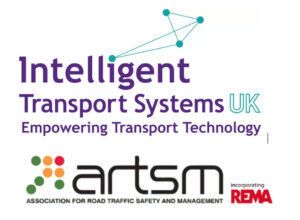The industry association for transport technology, Intelligent Transport Systems UK, has issued an open letter calling for changes to VAT to support the roll out of Demand Responsive Transport.
DRT is an innovative approach to public transport that utilises technology to provide dynamic, on-demand bus services for local communities, and ITS UK says DRT is particularly effective in providing a public transport link for those with limited transport alternatives, such as in rural areas. The Government has funded a number of DRT schemes across the country, through the Rural Mobility Fund, although the number of schemes in the UK lags behind European counterparts.
ITS UK is calling for a change in VAT rules, which currently mean transport authorities are incentivised to buy larger, 10+ seater vehicles for DRT schemes, as smaller, more carbon-efficient vehicles have VAT applied to fares. This makes DRT schemes more expensive for local authorities, as it means higher purchase, operation and maintenance costs, as well as reducing the environmental benefit of DRT schemes.
ITS UK CEO Max Sugarman said: “Ahead of the Chancellor’s Spring Budget in two weeks, ITS UK is urging the Government to make a cost-neutral change to the tax rules to support Demand Responsive Transport services. DRT bus services are a vital lifeline for many communities, providing public transport access particularly in rural and low income areas.
“Yet, due to VAT regulations, DRT services are more expensive than they need to be, with local authorities incentivised to use larger, less environmentally-friendly vehicles, thereby adding to the cost of running these schemes. So, today, in an open letter on behalf of the industry, we’re urging the Chancellor to unlock DRT schemes for communities across the UK with a simple change to the VAT rules – a move that requires no primary legislation and would put DRT schemes on the same footing as other bus services.
“By making this small change, the Chancellor can help improve connectivity for people who need it most, supporting investment, jobs and economic growth in regions across the country.”
Sam Griffiths, Head of UK & Nordics at ITS UK Member Via, said: “Authorities across the UK are looking to provide more efficient and more effective public transport for their residents. Unfortunately, this antiquated regulation is having the unintended consequence of blocking innovative new transport services and causing local authorities to spend more money than they need to. We support reforming it so that communities of all sizes have the flexibility to deploy sustainable public transport to better connect residents to jobs, education, and healthcare.”
(Picture – ITS UK)























